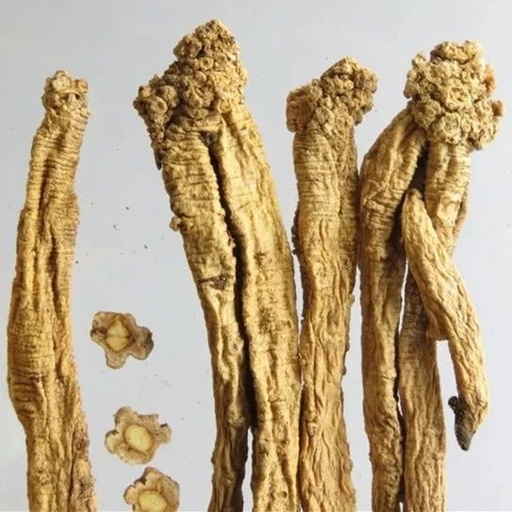When it comes to “ginseng,” many people naturally think of the herb known as the “King of Herbs.” Indeed, ginseng has been a prized tonic from ancient times to the present. However, the current situation is that due to overharvesting, environmental factors, and growth rates, true wild ginseng is extremely rare and expensive, making it unaffordable for the average household. So, is there a medicinal herb with similar effects to ginseng that is not as costly and can clinically replace ginseng? The first herb recognized by practitioners for use in non-critical situations is Dang Shen (Codonopsis pilosula).
Dang Shen
Source: This herb is the dried root of the plant Dang Shen (Codonopsis pilosula), also known as Su Hua Dang Shen or Chuan Dang Shen. It is harvested in autumn, cleaned, and dried.
Part Used: Dried root.
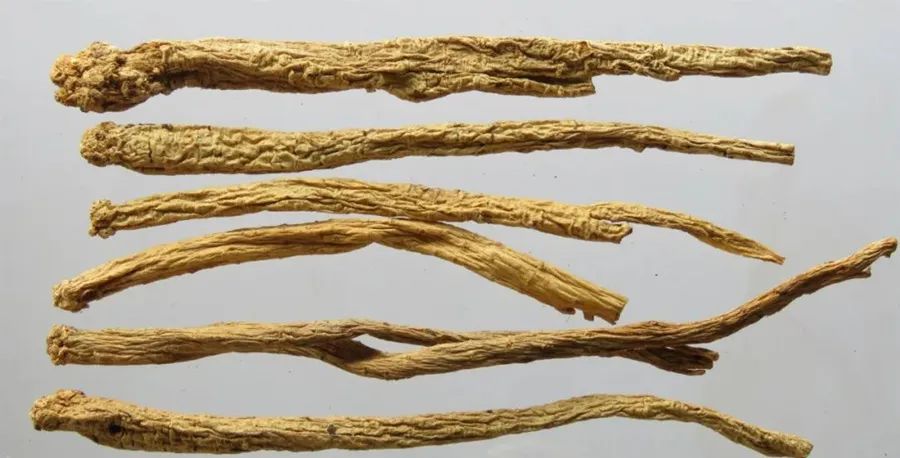
▲Chuan Dang Shen herb (Image source: Medicinal Plant Illustrated WeChat)
Taste and Properties: Sweet in flavor, neutral in nature.
Meridians Entered: Spleen and Lung meridians.
Functions: Strengthens the spleen and benefits the lungs, nourishes blood and generates fluids.
Indications: Used for spleen and lung qi deficiency, poor appetite, fatigue, cough with shortness of breath, insufficient qi and blood, pale complexion, palpitations, shortness of breath, thirst due to fluid damage, and internal heat leading to thirst.
Modern research has confirmed that this herb can increase blood cell counts, raise blood sugar levels, regulate gastrointestinal motility, and has anti-aging, anti-hypoxia, and anti-radiation effects. Clinically, it is mainly used to treat coronary heart disease, hyperlipidemia, leukopenia, and altitude sickness.
Preparation Method: After cleaning the soil, moisten and remove the fibrous parts, slice or cut into sections, and dry.
Dosage: The general daily dosage is 9-30g, which can be decocted or brewed as tea. For generating fluids and nourishing blood, it is best used raw; for tonifying the spleen and benefiting the lungs, it is recommended to stir-fry or roast.
Precautions: Avoid use in cases of excess internal pathogens or heat pathogens, and do not use with Li Lu (Veratrum).
Dang Shen is Excellent for Supplementing Lung and Spleen Qi
In summer, Dang Shen is a very good choice for tonifying qi. In Guangdong, many people add Dang Shen to their soups. Compared to ginseng, Dang Shen is milder and specifically supplements lung and spleen qi, rarely causing the “over-tonification” issues.
Dang Shen is particularly suitable for adults and children who have heavy study or work tasks, often stay up late, lack sleep, feel fatigued, frequently catch colds and coughs, experience abdominal bloating and loose stools, or have digestive issues. Regularly using Dang Shen in water or soups can be beneficial for daily health maintenance.
■ Tonifies Qi and Benefits the Spleen and Stomach
Dang Shen strengthens the spleen without causing dryness, enhancing spleen and stomach function, improving appetite, and significantly helping with a dull complexion and fatigue.
■ Stops Cough and Relieves Asthma, Moistens the Lungs and Generates Fluids
According to the Compendium of Materia Medica, it states: “(Dang Shen) treats lung deficiency and benefits lung qi.” The lungs are the master of qi, and Dang Shen enters the lung meridian, effectively improving cough and asthma.
■ Post-Illness and Postpartum Recovery
Dang Shen tonifies qi and helps in blood production. The Scientific Folk Herbal Medicine also refers to Dang Shen as a “blood tonic,” making it suitable for recovery after illness or childbirth in cases of qi and blood deficiency with a pale complexion.
■ Enhances Immunity
For those who are prone to illness, consuming Dang Shen can enhance immunity. Dang Shen contains various sugars, vitamins, essential amino acids, and trace alkaloids, which can strengthen the body’s resistance and provide better protection against illness.
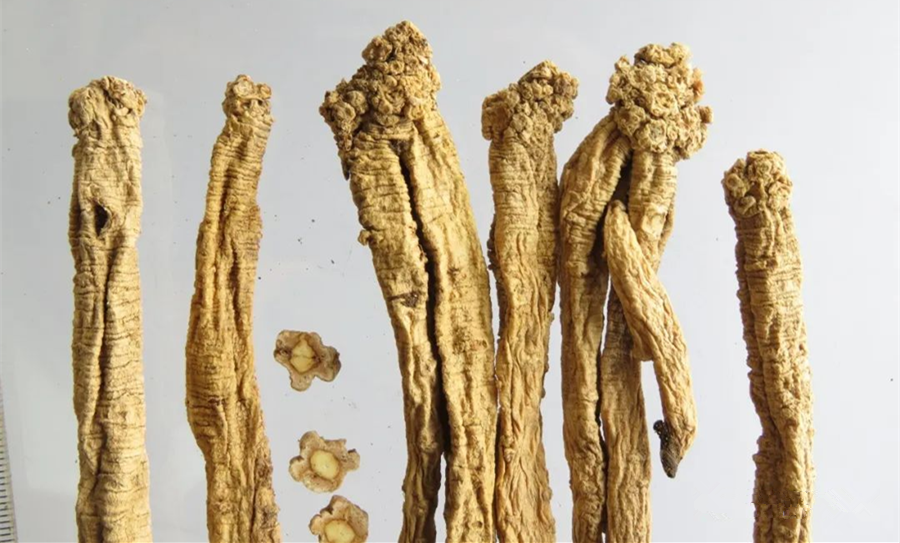
▲Su Hua Dang Shen herb (Image source: Medicinal Plant Illustrated WeChat)
Dang Shen Recipes
Tea
Red Date and Dang Shen Tea
Preparation: 10g of Dang Shen, 4 red dates, boiled in water to drink as tea.
Function: Tonifies the lungs and strengthens the spleen, benefits qi and nourishes blood, suitable for fatigue, lethargy, and drowsiness caused by spleen and lung qi deficiency in autumn.
Dang Shen and Walnut Tea
Preparation: 10g of Dang Shen, 3 walnuts, boiled in water to drink as tea.
Function: Warms and tonifies the lungs and kidneys, calms asthma. Suitable for shortness of breath and cough due to lung and kidney deficiency.
Dang Shen and Astragalus Tea
Preparation: 10g each of Dang Shen and roasted Astragalus, 5g of Bai Zhu (Atractylodes macrocephala), and 5 jujubes, boiled in water to drink as tea.
Function: Tonifies qi and benefits the spleen and lungs, generates fluids and nourishes blood. Regular consumption can enhance immunity and is very effective for those recovering from serious illness, with weakness and excessive sweating.
Soup and Porridge
Dang Shen and Angelica Chicken Soup
Preparation: 10g of Dang Shen, 5g of Angelica, 10 jujubes, and 1 chicken. Clean and cut the chicken; place all ingredients in a pot, add appropriate water, and simmer for 1 hour, then season and consume.
Function: Regular consumption has the effect of tonifying qi and nourishing blood, making it a very suitable soup for those with insufficient qi and blood, dull skin, weakness in hands and feet, fatigue, and dizziness.
Dang Shen and Dendrobium Duck Soup
Ingredients: 30g of Dang Shen, 20g of Dendrobium, 300-500g of duck meat, and 5g of ginger.
Preparation:
① First, cut the duck meat into pieces and blanch it;
② Then wash the Dang Shen, Dendrobium, and ginger, place them in a clay pot, add appropriate water, and simmer over medium to low heat for about 1 hour;
③ After the soup is ready, season with salt and consume the soup and meat.
Function: Tonifies qi and nourishes yin.
Dang Shen, Job’s Tears, and Yam Porridge
Preparation: 10g of Dang Shen, 30g each of yam and Job’s Tears, 10 jujubes, and 50g of rice. Cook into porridge for consumption.
Function: Strengthens the spleen, benefits qi, and dispels dampness. Nourishes yin and blood, and moisturizes the skin, suitable for those with weak spleen and stomach with dampness, such as poor appetite and loose stools.
How to Choose Quality Dang Shen?
Dang Shen is a valuable medicinal material with complex sources in the market across the country. Authentic Dang Shen is divided into wild and cultivated varieties, with cultivated varieties differing in characteristics due to factors like origin and field management; some are mixed with various plants of the Campanulaceae family, and others are roots of different families that resemble Dang Shen, leading to confusion. Many people spend a lot of money only to buy inferior products.
So how can you choose quality Dang Shen? Hua Chengkun, a chief pharmacist at the Pharmacy Department of the First Affiliated Hospital of Guangzhou University of Chinese Medicine, teaches everyone to use the method of “look, smell, and taste” to select Dang Shen.
Look
Look for the “Lion’s Head”
The root of Dang Shen has many wart-like protrusions and buds at the top, with each bud having a depressed round dot at the top, resembling the curly hair of a stone lion’s head, hence the nickname “Lion’s Head.” The root of the plant Mi Guo Qing (Apium graveolens) resembles Dang Shen but does not have the “Lion’s Head.”
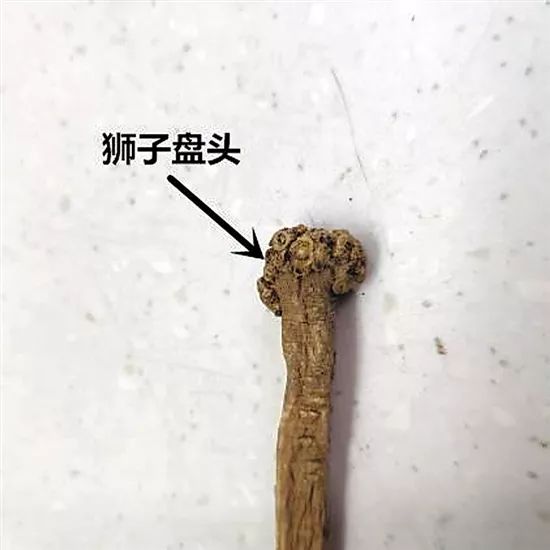
Look at the “Skin Texture”
The skin texture of Dang Shen varies by origin.
Dang Shen (mainly produced in Shanxi, known as “Lu Dang”): The root has dense circular transverse wrinkles at the top, gradually becoming sparse downwards, some reaching half the length; cultivated varieties have few or no circular transverse wrinkles. The entire root has longitudinal wrinkles and scattered transverse skin pore-like protrusions, often with black-brown gelatinous substances at the broken root ends.
Su Hua Dang Shen (mainly produced in Gansu, commonly known as “Wen Dang”): The root has dense circular transverse wrinkles, often reaching more than half the length.
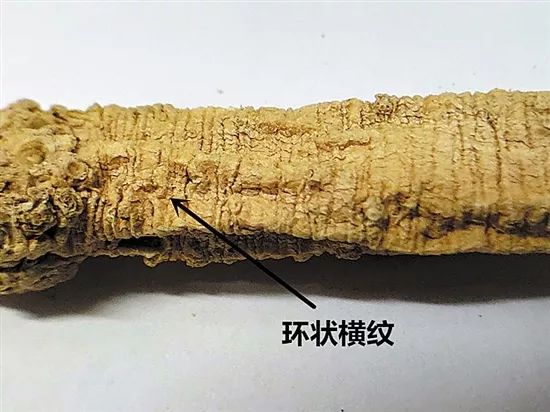
Chuan Dang Shen (mainly produced in Sichuan, Nanping, Songpan, etc.): Has obvious irregular longitudinal grooves.
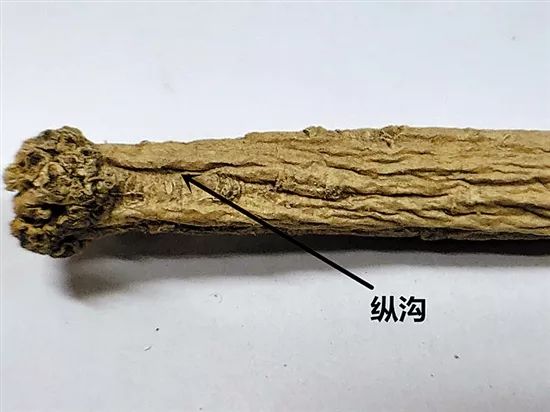
Smell
Dang Shen has a strong aroma, different from the scent of ginseng from the Araliaceae family; the scent of Si Ye Shen (Panax notoginseng), which is also from the Campanulaceae family, is also different and has a pungent smell.
Taste
Dang Shen is soft and sweet in taste, chewing it leaves little or no residue. In Sichuan and Guizhou, there is a type known as sweet Dang Shen, which is slightly sweet but leaves residue when chewed; there is also a type called Chai Dang Shen, which has a poor sweet taste and is difficult to chew; another type, Mi Guo Qing, tastes like carrot, making it easy to distinguish from Dang Shen.
Therefore, remember the key points for identifying Dang Shen: distinguish the texture and grooves, the aroma is strong and sweet, and it should be soft and smooth with a “Lion’s Head” appearance.
Legend
According to legend, the immortals Lü Dongbin and Tie Guaili traveled from the Central Plains to the Taihang Mountains and saw a wild boar rolling on the hillside. The two immortals approached to investigate—what they found was a plant resembling a bean vine growing in the soil. Tie Guaili dug up the root, put it in his mouth, and chewed while following Lü Dongbin. After a while, Lü Dongbin was panting, while Tie Guaili remained unaffected.
Later, they met a woodcutter who informed them that Tie Guaili was eating a divine herb. This divine herb was discovered by a family in the ancient Shangdang County, who every night heard faint human voices. Following the sound, they found an unusual plant resembling a human form not far from their home, and since it was born in Shangdang County, they named this divine herb “Dang Shen.”■
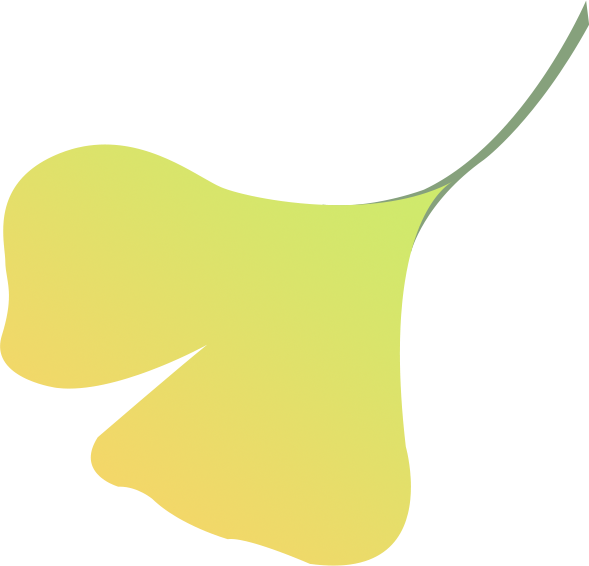
Source: Guangdong University of Traditional Chinese Medicine, The First Affiliated Hospital of Guangzhou University of Chinese Medicine, Beijing University of Chinese Medicine, and the 2020 edition of the “Chinese Pharmacopoeia”
Editor: Wen Jialin, Xu Rumeng
Editor-in-Chief: Chen Guangtai
You Might Also Like
[Notice] Disease Control Reminder: The Epidemic Season Has Arrived! The Main Transmission Route Is…
[Reminder] Can’t Eat Longkou Vermicelli on an Empty Stomach? Netizens Were Shocked! Doctors Say…
[Exploration] Just Because I Looked at You in the Crowd, I Got “Pink Eye”?
↙ Please click “Read the Original” to enter the official website of the Guangdong Provincial Health Commission!

